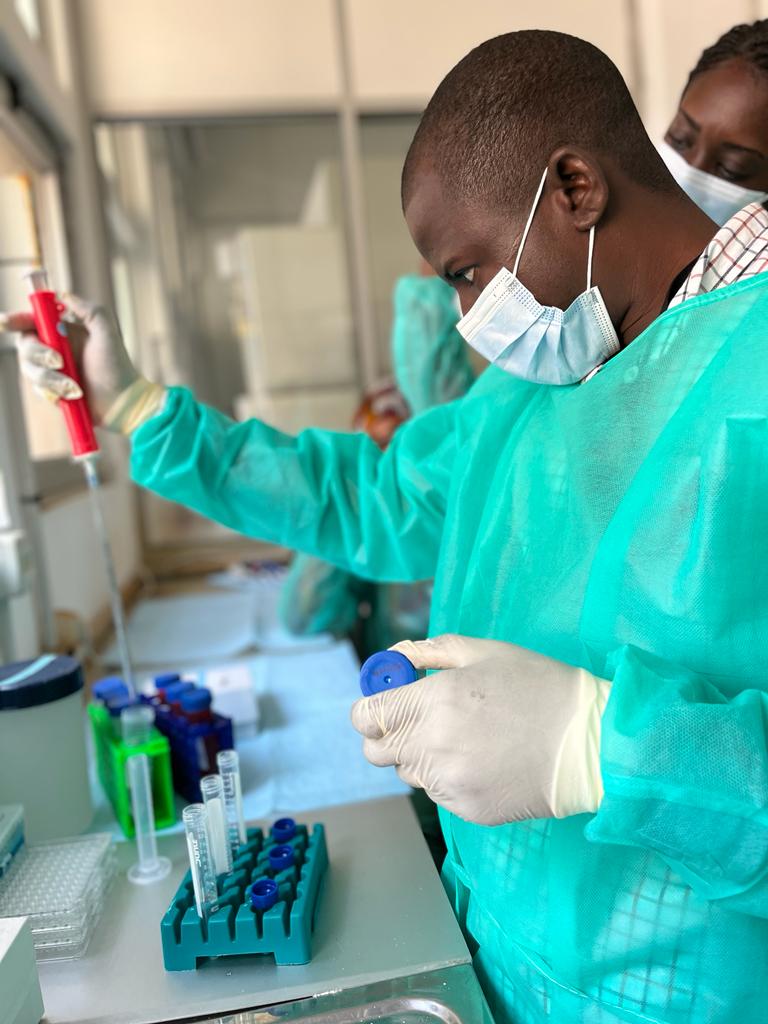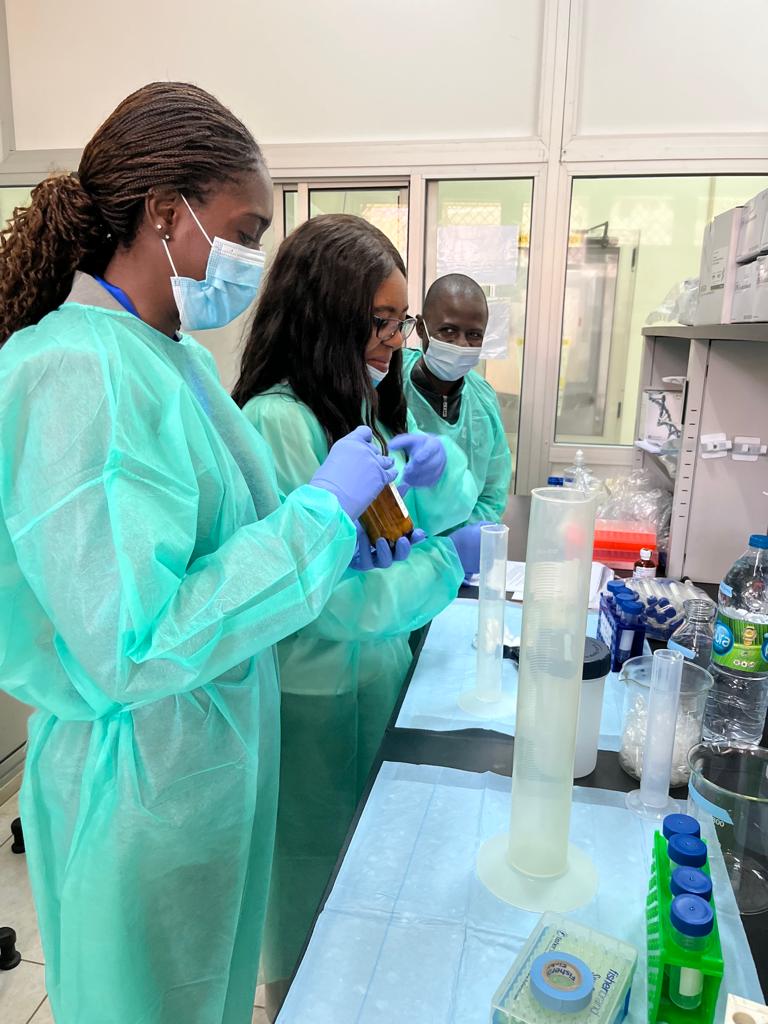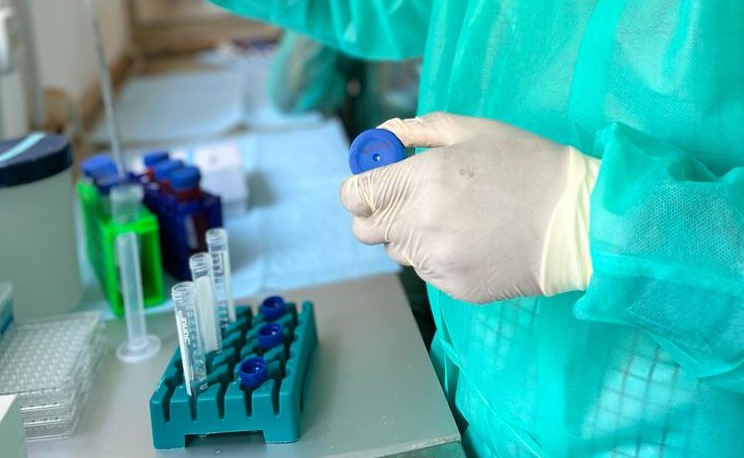A year ago, Angola was not yet able to conduct laboratory testing on mosquitoes responsible for transmitting malaria throughout the country. Julio Estobre, a molecular biology laboratory technician at the Instituto Nacional de Investigação em Saúde (National Health Research Institute – INIS), understood that data generated from laboratory testing is essential to informing national vector control decisions and sought to provide Angola with that capability. In response to INIS’s request for support, the U.S. President’s Malaria Initiative (PMI) VectorLink project provided trainings to the INIS staff to strengthen capacity to conduct laboratory tests that determine mosquito species and identify malaria parasites.

“Conducting molecular analyses of mosquito samples in-country allows for more rapid determination of which species contribute to the transmission of malaria,” said Julio. The National Malaria Control Program (NMCP) can then use this information to make evidence-based decisions about which vector control interventions are most appropriate.
Julio became interested in working to end malaria thanks to his work at INIS. “At INIS, I was primarily working with Aedes mosquitoes and their role in dengue transmission. This work awakened my interest in other vector-borne diseases like malaria, which is primarily transmitted in Angola by Anopheles mosquitoes,” he shared.
The PMI VectorLink Angola team has been partnering with INIS and the NMCP since 2019 to collect and analyze samples obtained through routine entomological surveillance and insecticide resistance monitoring activities. As these activities progressed, PMI VectorLink Angola laboratory technician Dr. Rossely Kuango and the VectorLink Angola team worked diligently to procure necessary equipment and materials to start laboratory analyses. Once the necessary materials were on-hand, PMI VectorLink began organizing training to strengthen INIS’s skills.
In March 2022, the team hosted a CDC entomologist who supported INIS as they conducted the first molecular tests (by PCR) to identify species of mosquitoes collected by VectorLink Angola. Later in the year, PMI VectorLink successfully trained Julio and another technician from INIS and three NMCP staff on how to detect infective malaria parasites within mosquito samples, using CS ELISA tests. Each training day had two main parts: a session to review standard operating procedures for that day’s steps, and a hybrid Q&A session with PMI entomologists to troubleshoot, ask questions, and discuss technical concepts.

Julio and the other trainees refined old skills and learned new ones, including “how to prepare Anopheles mosquitoes for molecular analysis through dissection and grinding. In addition, we learned a new way to extract the mosquito’s DNA and how to interpret PCR results, which together help us to identify which Anopheles species are present in the various areas in the country.”
Of the 150 field collected samples tested during the training, seven were positive for the malaria parasite, Plasmodium falciparum. The team has continued to consistently process samples at a rapid pace. These laboratory results will help inform future vector control efforts, and the capacity strengthening efforts will enable Angolans to continue to analyze malaria vector species in-country, allowing for vector control efforts to be tailored and adjusted as needed.
“My hope is that the entomological and molecular capacity increases,” shared Julio. “With the right data at our fingertips, we can help better understand malaria transmission in Angola.”


